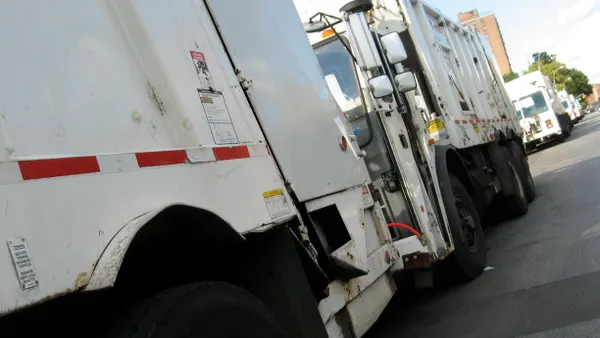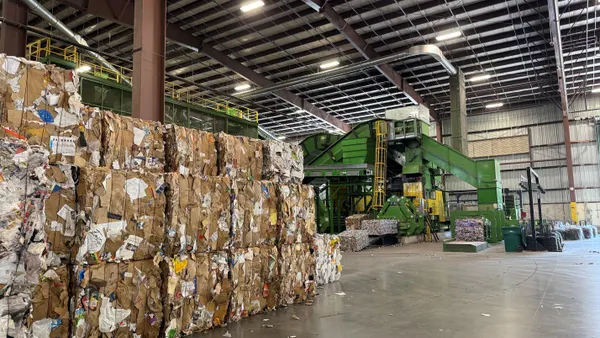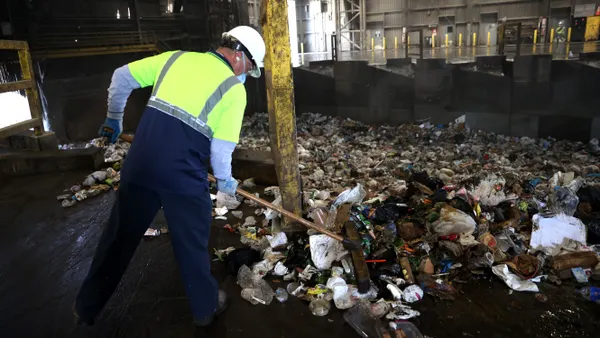UPDATE: Aug. 28, 2018: Sanitation Salvage filed a lawsuit against the City of New York on Aug. 27 in response to its license suspension. As reported by multiple local publications, the suit calls BIC's emergency suspension "a death sentence" and takes issue with a lack of due process. It also makes a number of other claims about constitutionality, questions BIC's authority over safety matters and accuses both the city and Mayor Bill de Blasio of defamation.
In an evening appearance on NY1, de Blasio showed no sign of altering his stance and said the company "had a record that was profoundly unsafe." He continued to stand by BIC's leadership, reaffirmed plans to strengthen the agency's authority with new legislation and previewed future actions to come.
"We want to see a lot more of this. We think there are other companies that deserve this kind of treatment or some other very serious sanction," said de Blasio. "You should expect a lot more aggressive action from the commission."
Though some on the City Council remain highly critical of BIC. Yesterday, the New York Times reported the agency will be the first of two targets for a newly formed council investigative unit. Council Member Ritchie Torres has promised "a top-to-bottom review of all the agency's budget and structural practices and personnel."
Dive Brief:
- New York's Business Integrity Commission (BIC) has suspended the trade waste license of Sanitation Salvage, a large local company, citing a "pattern of unsafe business operations that creates an imminent danger to life and property." This includes 58 collisions in the past three years — two resulting in fatalities and 11 in personal injuries. This was first reported by the New York Daily News, following multiple stories by Pro Publica.
- A Sanitation Salvage spokesperson called the decision "both unlawful and misguided," as a broader BIC investigation of the company is still ongoing, and cited potential harm to employees and customers. "Sanitation Salvage will pursue all legal remedies, as necessary, to reverse this gross abuse of government authority and violation of Sanitation Salvage's rights as a long-time licensee in good standing."
- All businesses are being advised to make other arrangements, a process which BIC and other groups are helping to facilitate. The Department of Sanitation (DSNY), in what it confirmed is a rare and perhaps unprecedented move, will service any of the company's approximately 6,000 customers (unless they have containers) through September 7 as needed. The city will also help relocate the company's 87 employees.
Dive Insight:
The decision came as a surprise to some in local circles and seems to mark a change in BIC's thinking after the agency previously said it wouldn't act until a broader investigation is complete.
That investigation was launched in late April following the second deadly Sanitation Salvage incident in less than six months. Both involved the same driver who has since been banned from the industry. Sanitation Salvage, citing what it says are NYPD conclusions, has attributed both to "pedestrian error." The first incident involved an off-the-books helper, not a pedestrian.
The fact that safety issues persisted into August — despite the high level of attention on the company's operations — appears to have played a role in BIC's decision. This month alone, one unlicensed Sanitation Salvage driver crashed into a car, another caused "significant property damage" at a wholesale produce market and another was found making a stop with a suspended license.
BIC's move comes after months of rising tensions between city agencies, elected officials and various advocacy groups around the appropriate level of oversight for New York's commercial waste industry. The full boundaries of its safety authority differ depending on whom you ask and the agency became a popular source of frustration over the summer. So far, Mayor Bill de Blasio's administration remains publicly supportive of the agency.
Industry reaction has been relatively quiet so far. New Yorkers for Responsible Waste Management, known for its support of an open market system, announced that "we support BIC’s decision to suspend the license of Sanitation Salvage and we have also chosen to suspend the company’s status as a member of NYRWM, effective immediately."
Sanitation Salvage has accused the BIC of "bowing to political pressure," and those exerting such pressure were quick to claim victory. The Transform Don't Trash coalition was supportive, but at least one member described the decision as "overdue." Council Member Antonio Reynoso, chair of the council's sanitation committee, applauded the decision in a statement. Though he also said that "we cannot simply stop at penalizing one company when we know all too well that these problems are systemic in the industry."
Recent political attention, spurred in large part by the Pro Publica stories, was credited with getting a long-discussed transfer capacity reduction bill through the council last month. Whether this momentum will be enough to propel much more complex franchise zone legislation remains to be seen.
Safety has become a key component of that discussion, and the surrounding debate will continue to play out in parallel as all involved await DSNY's zone plan next month. The BIC is still looking for expanded authority ahead of time, both in the form of new rules and expected legislation. Zoning opponents are also pushing their own legislation to make changes within an open market system.
In the meantime, an expected hearing on the Sanitation Salvage suspension this week will be a popular focal point and a telling sign of just how far BIC is willing to go as it flexes more authority.












